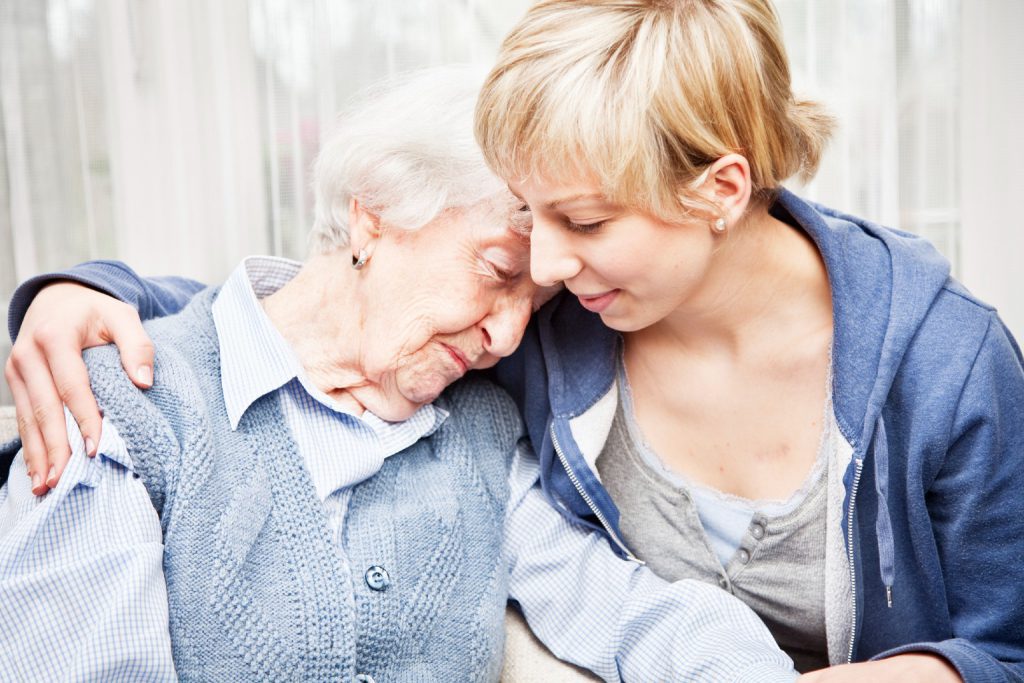Caring for a loved one with dementia or any other age-related condition is no easy feat. Depending on the level of assistance needed, caregiving can become a round-the-clock job. Caregivers often feel pressure or an obligation to attend to a parent or relative, which can cause changes in family dynamics and lead to caregiver burnout.
According to a report from AARP, 36% of family caregivers say their situation is highly stressful. Another study showed 42% of family caregivers experience depression, mood swings, or resentment and say their work negatively affects their relationship with a partner.
If any of this sounds familiar to you, you may be experiencing caregiver burnout, which should not be taken lightly. Caregiver burnout is characterized as a state of physical, emotional, and mental exhaustion brought on by continuous stress and guilt from caretaker responsibilities. It can be presented in many ways and should be addressed before it spirals out of control.
Causes and Warning Signs of Caregiver Burnout
As a caregiver, you likely have a heavy workload you’re dealing with on top of the emotional demands the role requires. Some individuals may feel extreme guilt for having a life outside of their day-to-day responsibilities. Lack of control is another factor of burnout since there are financial obligations and specific skills needed to effectively manage a loved one’s care.
If you’re resonating with what you’re reading, there’s a strong chance you’re experiencing caregiver burnout. Here are some additional indicators to consider:
- Anger or frustration toward the person you’re caring for
- Anxiety and/or depression
- Feeling exhausted often
- Getting sick more often than normal
- Inability to concentrate and forgetfulness
- Trouble falling or staying asleep
- Withdrawing from activities you used to enjoy
- Irritability and moodiness
Organizations like the American Medical Association have developed an online caregiver assessment to help you further identify your level and risk of burnout.
How to Prevent and Manage Caregiver Burnout
If you’re taking care of a loved one and are worried about potential burnout, there are preemptive steps you can take to prevent it and ways to manage existing symptoms. This includes not being afraid to ask for help. No one can do it all alone; that’s why it’s so important to tap into your support network.
Here are more tips to help you maintain a healthy workload as a caregiver.
- Take breaks! Go for walks outside or make time for friends. Take a spa day or even a long bath. Try meditation or yoga to help ease your anxiety.
- Take care of yourself. Don’t skip out on meals, sleep, or doctor’s appointments. Find time to exercise to get your body moving and alleviate stress.
- Join a support group. You’re not alone in your struggle, and talking with other caregivers can help you feel seen and might even help you learn new care strategies.
- Talk to someone. Whether it’s your doctor, a family member, friend, or therapist, talking to someone about what you’re going through can make all the difference in navigating the world of caregiving.
- Consider your options. See if you have family-leave benefits from your place of work. Find out if there are resources available to help with your workload.
Sometimes tapping into your resources is the best option. At Eddy Senior Living, we proudly offer supportive care services for seniors in the Capital Region, including skilled nursing, dementia care, assisted living, and respite. We offer care options that will meet your loved one’s unique needs, including short-term assistance or more permanent, long-term care. Contact us today to get started or call (518) 280-8385.

